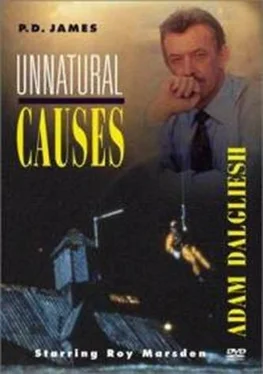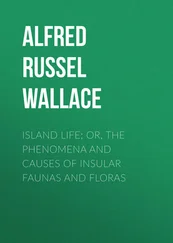P James - Unnatural Causes
Здесь есть возможность читать онлайн «P James - Unnatural Causes» весь текст электронной книги совершенно бесплатно (целиком полную версию без сокращений). В некоторых случаях можно слушать аудио, скачать через торрент в формате fb2 и присутствует краткое содержание. Жанр: Детектив, на английском языке. Описание произведения, (предисловие) а так же отзывы посетителей доступны на портале библиотеки ЛибКат.
- Название:Unnatural Causes
- Автор:
- Жанр:
- Год:неизвестен
- ISBN:нет данных
- Рейтинг книги:4 / 5. Голосов: 1
-
Избранное:Добавить в избранное
- Отзывы:
-
Ваша оценка:
- 80
- 1
- 2
- 3
- 4
- 5
Unnatural Causes: краткое содержание, описание и аннотация
Предлагаем к чтению аннотацию, описание, краткое содержание или предисловие (зависит от того, что написал сам автор книги «Unnatural Causes»). Если вы не нашли необходимую информацию о книге — напишите в комментариях, мы постараемся отыскать её.
Unnatural Causes — читать онлайн бесплатно полную книгу (весь текст) целиком
Ниже представлен текст книги, разбитый по страницам. Система сохранения места последней прочитанной страницы, позволяет с удобством читать онлайн бесплатно книгу «Unnatural Causes», без необходимости каждый раз заново искать на чём Вы остановились. Поставьте закладку, и сможете в любой момент перейти на страницу, на которой закончили чтение.
Интервал:
Закладка:
“But no supper?” enquired Miss Dalgliesh.
“No supper, Miss Dalgliesh. It looks as if he died before he had his evening meal. But the PM will tell us more, of course.”
Jane Dalgliesh made her excuses and went into the kitchen to prepare dinner. Dalgliesh guessed that she thought it tactful to leave him alone with Reckless. As soon as the door closed behind her, he asked: “Who saw him last?”
“Latham and Bryce. But nearly everyone admits to having spent some time yesterday with him. Miss Kedge saw him shortly after breakfast when she went up to the house to do her chores. He has kept her on as a kind of secretary-housemaid. Making use of her rather as his half-brother did, I imagine. Then he lunched with Miss Calthrop and her niece at Rosemary Cottage and left shortly after three. He called in on Bryce on his way home to Seton House to gossip about the return of your aunt’s chopper and to try to find out what you were doing in London. That little trip seems to have aroused general interest. Latham was with Bryce at the time and the three of them were together until Seton left shortly after four.”
“What was he wearing?”
“The clothes he was found in. He could have carried his flask in his jacket, trousers or overcoat pocket. He took the coat off, of course, at Rosemary Cottage and Miss Calthrop hung it in the hall cupboard. At Bryce’s place he slung it over a chair. No one admits to seeing the flask. As I see it, any of them could have put in the poison, Kedge, Calthrop, Marley, Bryce or Latham. Any of them. And it needn’t have been yesterday.”
He did not, Dalgliesh noted, add Miss Dalgliesh’s name; but that didn’t mean that she wasn’t on the list.
Reckless went on: “I can’t make much headway, of course, until I get the PM and know what the poison was. Then we shall get moving. It shouldn’t be too difficult to prove possession. This wasn’t the kind of stuff you get prescribed on EC 10 or buy over the chemist’s counter.”
Dalgliesh thought he could guess what the poison was and where it had come from. But he said nothing. There had already been too much theorising in advance of the facts and he judged it wiser to wait for the post-mortem. But if he were right, Reckless wasn’t going to find it so easy to prove possession. Nearly everyone at Monksmere had access to this particular source. He began to feel rather sorry for the Inspector.
They sat together in silence for a minute. It wasn’t a companionable silence. Dalgliesh could sense the stress between them. He couldn’t guess what Reckless was feeling, he could only recognise with a kind of hopeless irritation his own awkwardness and dislike. He looked across at the Inspector’s face with detached interest, building up the features in his mind as he might an Identikit picture, observing the flatness of the wide cheekbones, the patch of white smooth-looking skin at each side of the mouth, the downward fold at the corners of the eyes and the little rhythmic twitch at the upper lid which was the only sign that the man had nerves. The face was uncompromising in its ordinariness, its anonymity. And yet, sitting there in that grubby raincoat, his face grey with tiredness, he still had force and personality. It might not be a personality which others found appealing. But it was there.
Suddenly Reckless, as if making up his mind to something, said harshly, “The Chief Constable wants to call in the Yard. He’s sleeping on it. But I think he’s already made up his mind. And there are those who will say it’s none too soon.”
Dalgliesh could find nothing appropriate to say to this. Reckless, still not looking at him, added: “He seems to take your view, that the two crimes are connected.”
Dalgliesh wondered whether he was being accused of trying to influence the Chief Constable. He couldn’t recall expressing this view to Reckless but it seemed to him obvious. He said so and added: “When I was in London yesterday it came to me how Maurice Seton could have been killed. It’s little more than conjecture at present and God knows how you’ll be able to prove it. But I think I know how it was done.”
Briefly he outlined his theory, morbidly sensitive to every inflection in his own voice which the Inspector might interpret as criticism or self-congratulation. His story was received in silence. Then Reckless said: “What put you on to that, Mr. Dalgliesh?”
“I’m not altogether sure. A number of small things I suppose. The terms of Seton’s will; the way he behaved at that basement table in the Cortez Club; his insistence on having one particular room whenever he stayed at the Cadaver Club; the architecture of his house even.”
Reckless said: “It’s possible, I suppose. But without a confession I’ll never prove it unless someone panics.”
“You could look for the weapon.”
“A funny kind of weapon, Mr. Dalgliesh.”
“But a weapon and a lethal one.”
Reckless drew an ordnance survey map from his pocket and spread it out on the table. Together they bent their heads over it, the Inspector’s pencil hovering above the twenty-mile radius around Monksmere.
“Here?” he asked.
“Or here. If I were the killer I’d look for deep water.”
Reckless said: “Not the sea, though. It might get washed up while we could still identify it. Not that I think it likely anyone would have connected it with the crime.”
“But you might have. And the murderer couldn’t risk that. Better get rid of it where there was every chance it wouldn’t be found, or would be found too late. Failing an old mine shaft I’d have looked for a sluice or river.”
The pencil came down and Reckless made three small crosses.
“We’ll try here first, Mr. Dalgliesh. And I hope to God you’re right. Otherwise with this second death on our hands, it’s all going to be a waste of time.”
Without another word, he folded the map and was gone.
3
After dinner there was more company. Celia Calthrop, her niece, Latham and Bryce arrived within a short time of each other, driving or fighting their way through the rising storm to seek a spurious safety at Jane Dalgliesh’s fireside. Perhaps, thought Dalgliesh, they could neither bear their own company nor feel at ease with each other. This at least was neutral ground, offering the comforting illusion of normality, the age-old protection of light and a warm fire against the darkness and enmity of the night. It certainly wasn’t a time for the nervous or imaginative to be alone. The wind was alternately howling and moaning across the headland and a fast-running tide was thundering up the beach driving the shingle in ridges before it. Even from the sitting room at Pentlands he could hear its long, withdrawing sigh. From time to time a fitful moon cast its dead light over Monksmere so that the storm became visible and he could see, from the cottage windows, the stunted trees writhing and struggling as if in agony and the whole wilderness of sea lying white and turbulent under the sky.
The uninvited guests, their heads down, fought their way up the path to Miss Dalgliesh’s door with the desperation of a fugitive band.
By half past eight they had all arrived. No one had troubled to fetch Sylvia Kedge, but apart from her the little company of five nights earlier was met again. And Dalgliesh was struck by the difference in them. Analysing it, he realised that they looked ten years older. Five nights ago they had been only mildly concerned and a little intrigued by Seton’s disappearance. Now they were anxious and shaken, possessed by images of blood and death from which they had little hope of shaking free. Behind the brave assumptions of ease, the rather desperate attempts at normality, he could smell fear.
Maurice Seton had died in London and it was still theoretically possible to believe that he had died naturally or that someone in London was responsible for his murder if not for the mutilation of his body. But Digby’s death was on home ground and no one could pretend that there had been anything natural about it. But Celia Calthrop, apparently, was still prepared to try. She was squatting in the fireside chair, knees gracelessly splayed, her hands restless in the heavy lap.
Читать дальшеИнтервал:
Закладка:
Похожие книги на «Unnatural Causes»
Представляем Вашему вниманию похожие книги на «Unnatural Causes» списком для выбора. Мы отобрали схожую по названию и смыслу литературу в надежде предоставить читателям больше вариантов отыскать новые, интересные, ещё непрочитанные произведения.
Обсуждение, отзывы о книге «Unnatural Causes» и просто собственные мнения читателей. Оставьте ваши комментарии, напишите, что Вы думаете о произведении, его смысле или главных героях. Укажите что конкретно понравилось, а что нет, и почему Вы так считаете.












